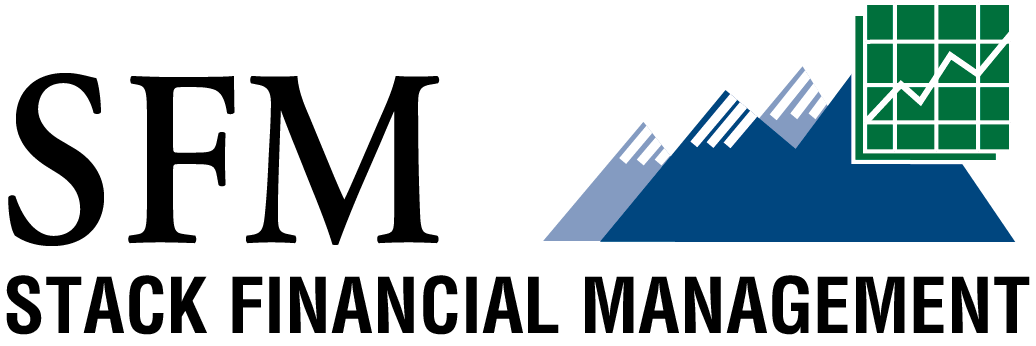
According to various websites, the average person spends 13 to 15 hours researching a new car purchase, but only 6 to 8 hours researching a financial professional. For many, hiring a financial advisor to manage your hard-earned savings is a daunting task. While you can ask your friends and family for recommendations, what works for them might not be the best for you. Your financial advisor should be someone you trust and have the utmost confidence in. Unfortunately, there’s no one-size-fits-all approach to this as we all need and want different things, and we all think about investments and risk differently. It’s a two-way street – you want to ensure they’re a good fit for you and that you’ll be a good fit for them in order to establish a mutually agreeable, long-lasting relationship.
There are many professional financial advisors to choose from, so we want to provide some tips to help you narrow the field. We also created the below PDF document to provide you with some helpful sample questions that will assist you with your interview and assessment of financial advisor candidates.
Do a background check
First, conduct a basic background check. We’ve all heard the headlines about people who have been bilked out of their life savings. The SEC’s Investment Advisor Public Disclosure website (IAPD) offers information on current licenses, experience, outside business activities, and any regulatory disclosures. Pay special attention to the disclosures as any customer complaints and disciplinary actions can be found in this section. If you see any disclosures, inquire about them to get a clearer understanding.
It’s important to understand the background and experience of the individuals who will be handling your investments. The IAPD website gives information on how long they’ve been working in the financial industry, their education, and any licenses they might hold. It won’t tell their whole story, but it gives a snapshot to help determine if you want to set up an interview with the firm and/or individual.
Understand the people
Hiring someone to manage your money is a very personal decision. It’s important that you take the time to get to know the people you’ll be working with. Ask about their background, experience, and credentials, and find out what prompted them to work in the financial industry. Someone doesn’t necessarily need a degree in finance to be a successful advisor and understanding why they wanted to work in finance often tells you more about who they are than their credentials will. By getting a better sense of the people you’ll be working with, you can better gauge if they seem like the right fit for you.
Determine if they are a fiduciary and if there are any conflicts of interest
What is a fiduciary? A fiduciary is someone ethically bound to act in your best interest at all times. They’re supposed to make recommendations based on what’s best for you and your situation, regardless of how it might impact them or their company. Financial firms that are Registered Investment Advisors (RIAs) fall under the fiduciary rule and are bound by law to put their clients’ interests before their own. Broker-dealers fall under a different standard called the suitability obligation, which means they need to act in the best interest of the customer at the time the recommendation is made, without placing their financial or other interest first. Sometimes various designations can muddy the waters, so it’s imperative to know how the advisor is paid and if there are any potential conflicts of interest as that can help you gauge if they’re putting your best interests first or not.
If an advisor is paid on a transactional basis (i.e. commissions) they’re incentivized to make frequent trades in your portfolio. While you might like the idea of making frequent changes, someone who is incentivized to do so may not have your best interest in mind. There are times when making changes to your portfolio could do more harm than good. There are also times when certain products could be recommended, like insurance, annuities or complex investments (i.e. private placements, MLPs, etc.) because they’re suitable and will result in a big pay day for the advisor.
Some advisors are paid based on a percentage of the assets they manage for you. If so, find out if they receive payments from any other sources. For instance, if they use mutual funds or insurance products, do those companies compensate them in any way? If so, ask how much and how the payments are structured.
There are also some financial professionals who get paid from both commissions and the assets they manage for you. In situations like this, it’s best to get all the fees up front and in writing, to ensure you have a clear understanding of possible incentives for them and how your fees will be working for you.
Other conflicts of interest can come from any business and referral sharing they might perform. Make sure to ask them if this applies and don’t be afraid to ask for the details.
It’s best to choose a professional who is being compensated in a way that aligns with your interests.
Understand their investment philosophy
Before learning about their investment philosophy, write down your own thoughts. Regardless of how sophisticated an investor you are, you should have some sense of what you want your investments to do. Write down your hopes and concerns about working with an investment professional too. Then, when you ask the professionals you interview about their philosophy, see how it stacks up against your own. Make sure what they’re saying makes sense and is easy to understand. Don’t be afraid to ask questions either. Investing in something you don’t fully understand is not usually an investment you’ll be able to stick with for the long-term.
Ask about the investment decisions
Next, find out how they make investment decisions. Do they manage their own clients’ portfolios, or are they hiring an outside manager?
If they hire an outside manager, make sure you understand how they choose the managers and evaluate them on an ongoing basis. Also ask about any additional costs involved in employing an outside manager. Find out if they’ve made frequent changes in their manager selection and ask to see historical information for the managed portfolio(s) they’re recommending. Lastly, ask about how the outside manager’s investment philosophy ties in to their own.
If they manage their portfolios in-house, find out who is making the investment decisions and how those decisions are made. Understand their history and any changes they’ve made to their philosophy and/or process over time.
Know what your relationship will look like moving forward
Lastly, you want to know what things will look like if you decide to move forward. Ask the advisor where your assets will be held. Do they take custody or employ the use of a third-party, such as a separate brokerage company or bank? It’s safest to have your assets held at a well-known financial firm as this provides an extra layer of security and transparency.
Find out how frequently you’ll communicate with them moving forward and how readily available they are when questions and needs arise. Determine if there is one primary contact person you need to talk to or if numerous people are available to assist you.
If there is a key decision maker, ask what contingency and succession plans they have in place.
Getting a complete picture and understanding of how a financial professional will be working for you should help you determine who is going to be the best fit. It’s always a good idea to interview a few different advisors, and we’ve created a simplified guide you can use to help during the process. At the end of the day, it comes down to what you’re looking for, how involved you want to be in the decision-making process, your investment philosophy and tolerance for risk, and an assessment of any other services provided to determine what will best help you meet your needs and achieve your goals for the future.
We’re always here to help and wish you the best in the search for the right financial advisor for you.




